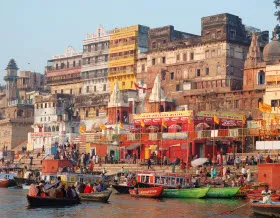
Don't assume that India will necessarily be a smart cities laggard. Consider these factoids from a recent article in CXO Today:
- The Indian government announced plans to set up two smart cities in every state
- 30 Indians leave rural areas for the city every minute
- India will have to accommodate another 700 million city dwellers over the next 20 years
- India will require 500+ new cities over the next 20 years
More than 500 new cities. Do you really think India will build 500 "dumb" traditional cities? Or will they spend that money on smart cities instead?
Let's remember how Korea leapfrogged the world in wireless telecommunications to far surpass the United States and other developed countries. I see every possibility that emerging economies like India could do the same thing in smart cities. -- Jesse Berst
The CXO article quotes Dipankar Chakraborti, the Research Director at the School of Environmental Studies at India's Jadavpur University on the rapid urbanization his country is experiencing today: "Changing demographics and depleting infrastructure and newer forms of threats are prompting the government to work towards the betterment of the citizens. This is where smart cities come into picture. The next one decade will see a phenomenal investment in higher intelligence in urban systems and processes."
Chakraborti expects to see a complete digitalization of the present infrastructure – and he's not alone.
“In the traditional sense, we tend to believe that smart cities include smart homes and smart buildings, but in reality, it will encompass the entire ecosystem such as smart healthcare, smart transportation, smart industrial automation as well as smart education,” said Amitabh Ray, Senior Vice President of Ericsson India Global Services, who was also quoted in the CXO article.
An IBM assessment of India's need for sustainable cities explains how this can be accomplished: "Replacing the actual city infrastructures is often unrealistic in terms of cost and time. However, with recent advances in technology, we can infuse our existing infrastructures with new intelligence. By this, we mean digitizing and connecting our systems, so they can sense, analyze and integrate data, and respond intelligently to the needs of their jurisdictions. In short, we can revitalize them so they can become smarter and more efficient. In the process, cities can grow and sustain quality of life for their inhabitants."
IBM is one of the companies currently working with the Indian government to further its smart cities plans.
More resources ...
India's Top 20 Promising Cities



